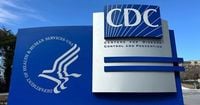On June 6, 2025, the August Egg Company initiated a massive recall of approximately 1.7 million eggs amid a growing Salmonella outbreak that has sickened dozens across multiple states. The recall, confirmed by the U.S. Food and Drug Administration (FDA) and the Centers for Disease Control and Prevention (CDC), targets brown cage-free and brown certified organic eggs distributed between February 3 and May 15, 2025.
The affected eggs were sold in grocery stores across nine states, including California, Nevada, Washington, Arizona, Nebraska, New Mexico, Illinois, Indiana, and Wyoming. Retailers involved include major outlets such as Walmart, Safeway, Save Mart, FoodMaxx, Lucky, Smart & Final, Raleys, Food 4 Less, and Ralphs. The recalled eggs bear plant code numbers P-6562 or CA5330 and have sell-by dates ranging from March 4 to June 19, 2025.
According to the CDC, 79 people in seven states have contracted the same strain of Salmonella linked to these eggs, with 21 requiring hospitalization. Fortunately, no deaths have been reported so far. The states reporting illnesses include New Jersey, Kentucky, Nebraska, Nevada, Arizona, Washington, and California. However, the CDC warns that the true number of sick individuals is likely higher, as many recover without medical attention and are not tested for Salmonella.
Salmonella is a leading cause of foodborne illness in the United States, responsible for approximately 1.35 million infections annually. The bacteria can cause symptoms such as diarrhea, fever, stomach cramps, severe vomiting, and dehydration. These symptoms typically appear between six hours and six days after exposure and usually last four to seven days. While most people recover without treatment, young children, the elderly, and individuals with weakened immune systems are at higher risk for severe illness and hospitalization.
The August Egg Company, based in Hilmar, California, approximately 20 miles south of Modesto, responded swiftly upon identifying the contamination. The company has begun diverting all eggs from the affected plant to an egg-breaking facility where they are pasteurized to eliminate pathogens. In a statement posted on the FDA's website, the company said, "August Egg Company's internal food safety team also is conducting its own stringent review to identify what measures can be established to prevent this situation from recurring. We are committed to addressing this matter fully and to implementing all necessary corrective actions to ensure this does not happen again."
The FDA and CDC advise consumers who have purchased these eggs to either discard them or return them to the store where they were bought. Additionally, it is recommended that any surfaces or items that may have come into contact with the recalled eggs be thoroughly washed and disinfected to prevent further spread of the bacteria.
This recall is part of a broader pattern of Salmonella outbreaks affecting the United States in recent months. In May 2025, the FDA announced a recall of cucumbers grown by Bedner Growers and distributed by Fresh Start Produce Sales after a Salmonella outbreak sickened 45 people and hospitalized 16 across 18 states. These ongoing outbreaks highlight the persistent challenges in food safety and the critical importance of prompt response measures to protect public health.
Consumers experiencing symptoms consistent with Salmonella infection, such as diarrhea and stomach cramps, are urged to seek medical advice promptly. While many recover without intervention, some cases can become severe, requiring hospitalization.
The recall covers a wide range of egg varieties, including organic, cage-free brown, and omega-3 enriched eggs, reflecting the broad distribution network of the August Egg Company. The eggs were available not only in major supermarket chains but also under various brand names, complicating efforts to track and contain the outbreak.
Health officials emphasize that Salmonella contamination can occur through multiple routes, including consumption of contaminated food and water, or contact with infected animals or their environments. The bacteria are a major cause of foodborne illness worldwide, making vigilance and strict food safety protocols essential.
As the investigation continues, the FDA and CDC are working closely with the August Egg Company and other stakeholders to identify the source of contamination and implement measures to prevent future outbreaks. This includes the company's commitment to a thorough internal review and the adoption of enhanced safety measures.
For now, the public is advised to remain cautious, adhere to recall instructions, and maintain good hygiene practices in the kitchen. This episode serves as a stark reminder of the complexities involved in food safety and the ongoing efforts required to safeguard consumers from harmful pathogens.


